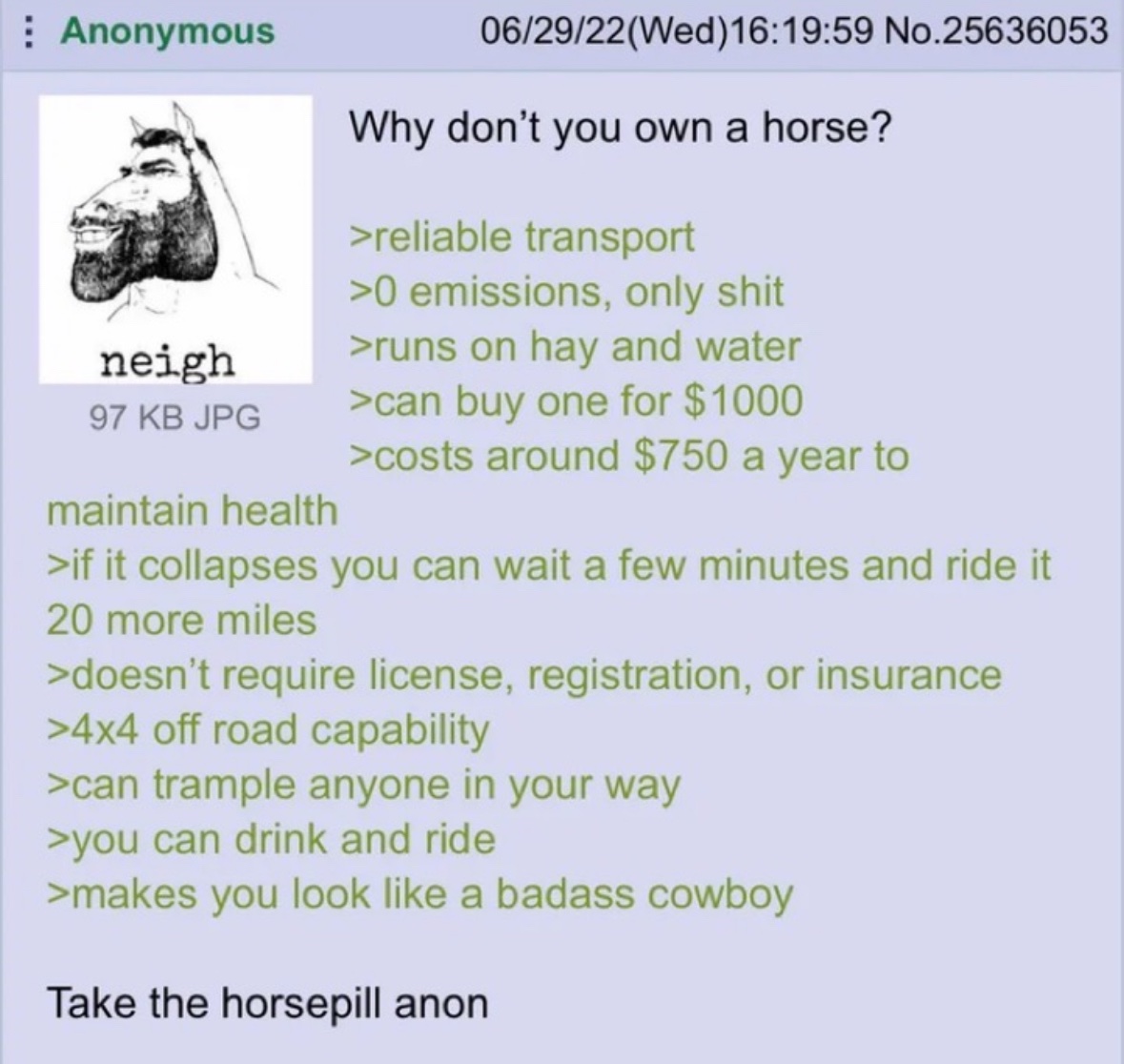this post was submitted on 11 Nov 2024
711 points (97.2% liked)
Greentext
4409 readers
1268 users here now
This is a place to share greentexts and witness the confounding life of Anon. If you're new to the Greentext community, think of it as a sort of zoo with Anon as the main attraction.
Be warned:
- Anon is often crazy.
- Anon is often depressed.
- Anon frequently shares thoughts that are immature, offensive, or incomprehensible.
If you find yourself getting angry (or god forbid, agreeing) with something Anon has said, you might be doing it wrong.
founded 1 year ago
MODERATORS
you are viewing a single comment's thread
view the rest of the comments
view the rest of the comments

Cars are still the most significant expense in most people's lives after shelter and certainly the most significant in terms of cost per actual time used.
I'd say food is a bigger expense for many, depending on how much they drive and whether they're paying the car off.
If you include all groceries, so pet food, toiletries etc, I'd spend more on groceries than my car most years.
Exactly.
I bought my current used car w/ cash, and it cost $10k. Gas in the first year would be something like $800 (45mpg, 10k miles, $3.50/gal for gas), and insurance would add another $500 or so. Let's add $1-2k for sales tax, registration, and maybe some random things that need fixing, and round up, so we're at $14k or so, or $1166/month.
I'm married w/ kids, and the USDA says I should be spending a little over $1k/month on food. So even in the first year of owning a car, I'd still probably spend more on food than the car. If I was single, divide that by about 3, so the car would be cheaper than food after 3-4 years.
There's no way a car is more expensive than food for the average person, assuming a reasonable car and reasonable food consumption.
Logically, any intelligent person who has money problems would have bought a cheaper, used car for probably under $5,000 (though how much under depends on area). The monthly payments for that would be minimal or non-existent. You'd still have to pay for gas and insurance, but those would be relatively small costs comparatively.